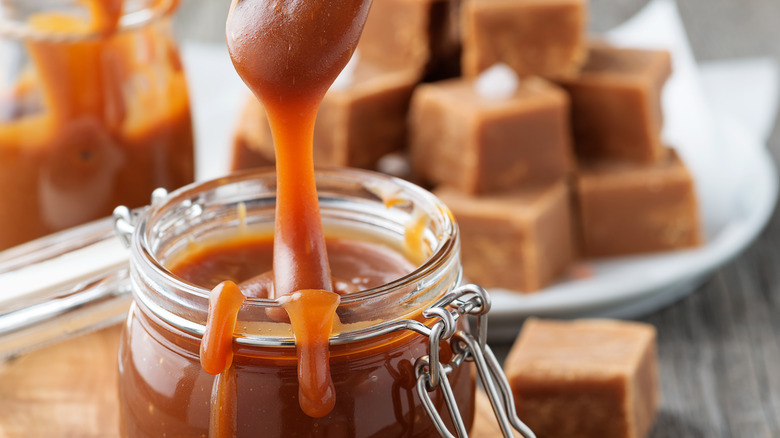Is Candy Sweetened With Allulose Really Better For You?
A little indulgence never hurt anyone. But when it comes to scarfing down candy and other sweets, a small amount can go a long way. While sugar is sometimes deemed the antagonist of the food and beverage world, there are still ways to enjoy the treats we love without feeling guilty. We've all come across artificial sweeteners such as aspartame, stevia, and xylitol. But there's one sugar substitute you may be only somewhat familiar with, if you've heard of it at all.
Allulose is a monosaccharide — or a "simple sugar," per Biology Online. Allulose is calorie-free and is labeled "generally recognized as safe" (GRAS) by the U.S. Food and Drug Administration, according to WebMD. It also doesn't affect blood sugar levels. So, what does this mean, exactly, and how are food and beverage companies, bakers, and home cooks alike using allulose in their goods?
Mashed spoke with Anthony DiMarino, a registered dietitian with the Cleveland Clinic, to gain a better understanding of what allulose is, how it compares to other types of sugar, and whether it provides any true health benefits.
Allulose is a rare sugar that's becoming popular among candy makers
Registered dietitian Anthony DiMarino explains that allulose, which is most often found in figs and other fruits, is considered a "rare sugar" due to its scarceness in nature. Perhaps this is why it's so coveted among brands who use it in their products' recipes. Cocomels, for example, incorporates allulose into its sugar-free caramels. Magic Spoon also uses allulose in its breakfast products.
DiMarino explains that because our bodies don't metabolize allulose into glucose, it isn't converted into energy like other common sugars. "Allulose could be considered a non-nutritive sweetener," he explains. "It has been shown that too much non-nutritive sweeteners can cause gastrointestinal discomfort such as bloating, gas, and diarrhea. It is always best to choose these sweeteners in moderation."
Because allulose is about 70% as sweet as table sugar, it's comparable in taste. If you want to substitute allulose for traditional cane sugar in your recipes, it's typically available at retailers and vitamin shops. However, it's important to remember that as a non-nutritive sweetener, allulose doesn't provide the essential nutrients our bodies need, as the term implies.
The bottom line: While allulose can help reduce your sugar and caloric intake, don't expect any game-changing health benefits if you make the switch.

